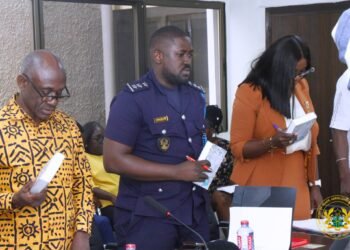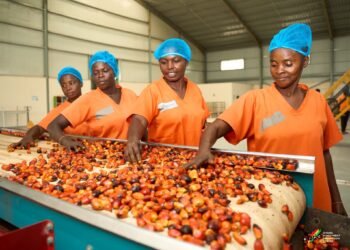Harriet Thompson, the British High Commissioner, has stated that Ghana risks losing 75 percent of its cocoa viability due to the devastating effect of climate change.
Addressing stakeholders engagement at the Royal Dialogue on Climate Change and SDGs at Kyebi, the British High Commissioner pointed out that, the country is vulnerable to a wide range of climate change impacts if temperatures rise to 1.5 degrees.
“The cases are urgent. I am sure many here will attest. We know that if temperatures rise by 1.5 degrees in our optimistic scenario, then 75 percent of Ghana’s current cocoa plantation could become vulnerable.
“From the coastal region in the south and desertification in the north and cost to its Hydro power as Ghana still relies heavily on rainfall for agriculture to feed a lot of people, the impact would be felt across the nation and by all of its people.”
Harriet Thompson
Harriet Thompson commended the Okyenhene Foundation for initiating the dialogue in collaboration with the leadership of SGD at the Office of the President.
Harriet Thompson
“Events such as these would refine Ghana’s message and add momentum to our cause. I am happy about the increasing global attention being given to the demand of countries like Ghana, who has least to do with the causes of climate change, yet must face the consequences regardless.”
The British High Commissioner charged His Royal Majesty, Okyenhene, noting that his voice is important, so, he should use his voice to help the country in the fight against a common enemy– climate change.
“His Royal Majesty, your voice is particularly important. Your credibility and role can help cut through the noise and ensure that both here in Ghana and in Glasgow, we are taking proper consideration of forest protection, agriculture, livelihoods and other adaptation agenda. Alongside Ghana’s skill and influential negotiation, I hope that this COP will be won when the needs of countries like Ghana are fully taken account of.”
Harriet Thompson
The Copenhagen Agreement
Ms Harriet Thompson further stated that the issue of Climate Change now, has become more of moral case than climate finance which was agreed in Copenhagen in 2009.
In Copenhagen in 2009, a goal was agreed on for the world to raise $100 billion by year 2020 from a wide variety of sources to help developing countries cut their carbon emissions.
However, the British High Commissioner to Ghana averred that as at 2018, the figures stood at $80 billion.
“In 2018, the figures could only reach $80 billion. The UK is prioritizing agreement at COP to see this figure rise and press upon for rich natures to pay their share.”
Harriet Thompson
The Copenhagen Climate Change Conference raised climate change policy to the highest political level, which saw close to 115 world leaders attended the high-level segment, making it one of the largest gatherings of world leaders ever outside UN headquarters in New York. More than 40,000 people, representing governments, non-governmental organizations, inter-governmental organizations, faith-based organizations, media and UN agencies applied for accreditation.
It significantly advanced the negotiations on the infrastructure needed for effective global climate change cooperation, including improvements to the Clean Development Mechanism of the Kyoto Protocol. Significant progress was made in narrowing down options and clarifying choices needed to be made on key issues later on in the negotiations.
It produced the Copenhagen Accord, which expressed clear a political intent to constrain carbon and respond to climate change, in both the short and long term. The Copenhagen Accord contained several key elements on which there was strong convergence of the views of governments. This included the long-term goal of limiting the maximum global average temperature increase to no more than 2 degrees Celsius above pre-industrial levels, subject to a review in 2015.
There was, however, no agreement on how to do this in practical terms. It also included a reference to consider limiting the temperature increase to below 1.5 degrees– a key demand made by vulnerable developing countries.
READ ALSO: African CSOs Face Acute Resource Shortfalls Amid Increasing Demand for Their Services























